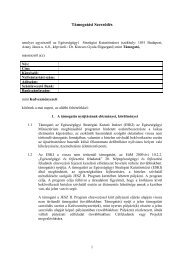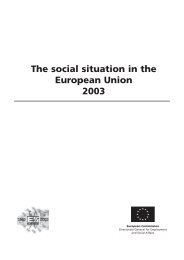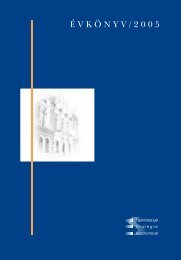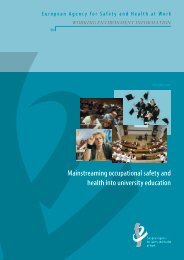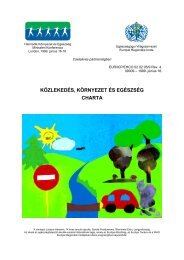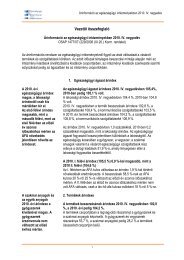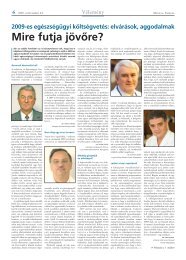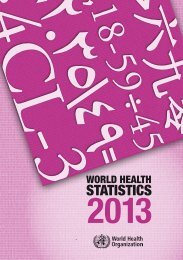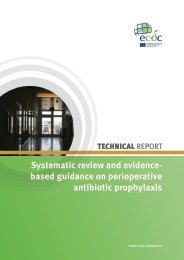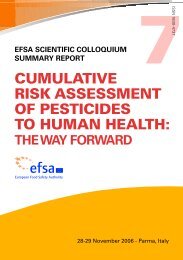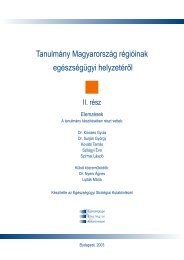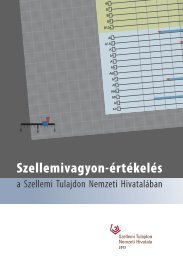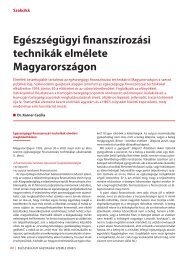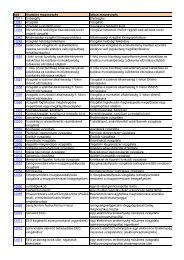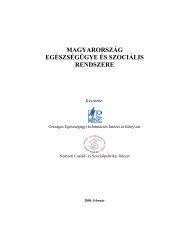WHO Technical Report Series, No. 981 - World Health Organization
WHO Technical Report Series, No. 981 - World Health Organization
WHO Technical Report Series, No. 981 - World Health Organization
You also want an ePaper? Increase the reach of your titles
YUMPU automatically turns print PDFs into web optimized ePapers that Google loves.
2. General policy<br />
2.1 Cross-cutting pharmaceutical quality assurance issues<br />
The Secretary to the Expert Committee gave a short overview of the general<br />
principles and working procedures of this Committee. She reminded the members<br />
of the Expert Committee that this was one of <strong>WHO</strong>’s oldest Expert Committees<br />
and that its work and its reports had long been seen as very significant for the<br />
<strong>Organization</strong>. She presented the report of the forty-sixth meeting of the Expert<br />
Committee of October 2011, which had been published during the year. She noted<br />
recent activities of the Expert Committees on Biological Standardization and on<br />
the Selection and Use of Essential Medicines, and mentioned recent publications<br />
on herbal and complementary medicines.<br />
<strong>WHO</strong> <strong>Technical</strong> <strong>Report</strong> <strong>Series</strong>, <strong>No</strong>. <strong>981</strong>, 2013<br />
2<br />
2.2 International collaboration<br />
2.2.1 Collaboration with international organizations and agencies<br />
The Global Fund to Fight AIDS, Tuberculosis and Malaria<br />
The work of the Global Fund to Fight AIDS, Tuberculosis and Malaria (GFATM)<br />
was summarized for members of the Expert Committee. GFATM has so far<br />
funded antiretroviral (ARV) treatment for 3.6 million people, treatment for 9.3<br />
million people newly diagnosed with infectious tuberculosis, 260 million malaria<br />
medicine treatments and has distributed 270 million insecticide-treated bednets.<br />
It was noted that there was a continuing need to balance the international<br />
standards of GFATM with the standards and requirements of individual countries.<br />
Procurement is done according to model quality assurance system (MQAS)<br />
principles and according to national and international laws. The Global Fund<br />
has a strict selection process, defined in its quality assurance policy, so quality<br />
standards must be assured either by <strong>WHO</strong>/PQP or by a stringent regulatory<br />
authority. When no products meet these standards, products reviewed by an<br />
Expert Review Panel (ERP) can be considered, but only under strict conditions.<br />
Countries are requested to monitor quality throughout the supply chain.<br />
The Global Fund's ERP (hosted by EMP/QSM) reviews the dossiers of<br />
products. So far the ERP has performed a risk–benefit assessment of 58 dossiers<br />
on ARVs, of which 29 (50%) were successful; 291 dossiers on antituberculosis<br />
medicines, of which 96 (33%) were successful, and 68 dossiers on antimalarials,<br />
of which 22 (32%) were successful.<br />
QSM's support to the Global Fund is provided through the prequalification<br />
programmes for medicines and quality control laboratories (QCLs), QSM<br />
technical expertise, the monographs (on ARVs, artemisinin combination therapy<br />
(ACT), antituberculosis and anti-infective medicines) of The International<br />
Pharmacopoeia, and through the development and updating of quality assurance<br />
guidelines.



